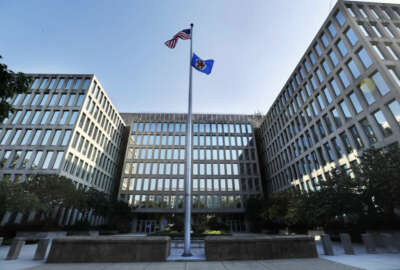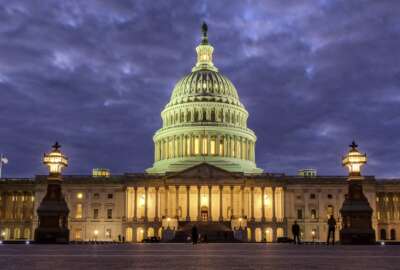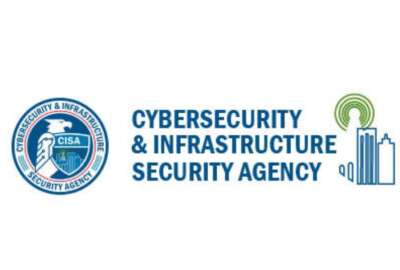Feds praise, criticize Obama’s proposed SES reforms
Federal News Radio polled its readers on how they felt about the President's proposed reforms to the Senior Executive Service. Many were "indifferent," but others...
Before nearly 3,000 members of the Senior Executive Service, President Barack Obama rolled out a series of reforms to the SES Tuesday.
The reforms include creating a Leadership Development Program to provide managers with rotational assignments at different agencies so that they can develop new skills. He also called for the formation of an advisory group made up of SES members and aspiring senior executives to focus on how the government recruits, hires and retains senior executive.
Separate from reforms to the SES, the Obama administration plans to create a customer service awards program. The non-monetary incentives will reward excellence by individual federal employees.
Federal News Radio asked its readers what they thought of the proposed reforms and the answers we got back proved to be a mixed bag.
We conducted an anonymous poll on our website yesterday, asking federal employees: “What feeling best describes your reaction to President Barack Obama’s announced reforms to the Senior Executive Service?” As of Wednesday at 4 p.m., 40 percent of the respondents said they felt “indifferent,” 29 percent said “It was a start,” and 13 percent were “Excited for the reforms.” Eighteen percent of those responding said they were “disappointed/frustrated” and that the reforms “don’t go far enough.”
We also asked readers to let us know how they felt about the President’s announcement through email, comments and social media. Below is a section of the comments we received:
- I am happy that our President is looking into these SES reforms. What is really most important is understanding why Federal Employees don’t trust upper management. It’s time to review how many upper level managers repeatedly violate Civil Rights laws and never are held accountable. That’s what he needs to look into.” — Concerned Fed Employees, via email
- “Ohh, please, another SES Advisory Board, this has been done before-Check OPM archives from 10-15 yrs ago and Congressional reports. The real issue is the process used to select SES, career and noncareer appointments. One obstacle is that some best candidates may be missed because the agency did not hire consultants to write the ECQs that get past the QRB at OPM. I know of what I speak, although, here in a reader’s digest version … outside the coop house opinions is what is needed from those who have worked/managed an executive program like SES or the governmentwide SES program.” — Cvolvic
- “The Department of Defense (DoD) ran a very successful SES development program up until 2014, when DCPAS disbanded the program to replace it with a completely different model.
“The Executive Leadership Development Program (ELDP) was an experiential learning program that provided future DoD Senior Executive Service leaders an opportunity to understand the width and breadth of the department while also learning about themselves, and their ability to communicate. The 10-month program provided hands-on experience with military personnel in operational settings. We ate MREs, slept in cots, ran obstacle courses, and learned about the strategic importance of diplomacy and the use of force in executing the mission of keeping the United States safe. Along the way, ELDP students worked on the core competencies outlined by the Office of Personnel Management for leadership, and honed their communications skills. …
“Several of us former students had remained aligned with program, serving as facilitators and mentors to subsequent students. That is until this year, when the DCPAS staff ‘threw the baby out with the bath water.’ …
“The President would do well to create a version of the old ELDP, and translate it to other federal Departments to create the skilled workforce we need to lead in the future. And the DoD should resurrect the program that it decimated this year. Though records are not kept, many current SES staff in the DoD are former ELDP students. — Anonymous, via email
- The reform needed is pay reform. If you want to attract and retain talent, you’ll have to pay a competitive rate. The relatively low levels of pay on the Executive Schedule is compressing the GS pay scale and talented GS-15s won’t be there when the SES wave starts to break in 2017. Until SES pay reform, the GS Pay Cap linkage to Level IV of the Executive Schedule should either be eliminated or changed to Level II.” — PinataFED
- “Hearing the President thank the SES for their ‘sacrifice’ was a slap in the face to every career rank and file civil servant, given our sacrifices that have led many of us to financial ruin. Callous, insensitive and insulting. Does he ever plan on thanking the rest of us? How about ending the pay freeze and restoring our bonuses?” — John Duff, Facebook
- “Navy’s Dep. Secretary for Civilian Personnel and EEO implemented the concept of rotational assignments for SES 20+ years ago but it never really got off the ground. I’m totally in favor of all government managers having broad experience and not pigeon-holed in a job they have grown up in through their entire careers. There’s so much more knowledge and experience to be gained by rotational assignments.” — John Donaldson, Facebook
In Depth host Francis Rose wrote a commentary about President Obama’s proposed SES reforms. Here are some of the comments that article generated:
- “The same can be said for all elements and approach to a management agenda … first CTO was actually Norm Lorentz, government should focus on citizen service, etc. How frustrating it must be for those still trying to make a difference … let’s see, the Administration screws up its supply chain by using LPTA and treating its suppliers like commodities, then gives agency executives banal “playbooks” and “handbooks” to teach them how to do good management. This is embarrassingly bad public management for the finest country in the world.” — Former Fed
- “Francis, I think you are right on point. While perhaps well intended, the administration has simply missed or ignored the abject need to get out front of the challenges and crises facing the federal workforce. Indeed, in many ways, the ‘whole of government’s’ workforce (including feds, contractors, non profit employees etc.) have been marginalized in recent years and, as my colleague Kymm McCabe would say, commoditized. I was in the audience in NY when then candidates Obama and McCain took a night off from the campaign for a forum on national and community service (including public service). It was there the President stated that he wanted to ‘make public service cool again.’ Unfortunately, little has been done in the way of follow up. And while one can applaud the steps the President outlined yesterday, it is also true that they are very limited, mostly unoriginal (indeed, some are already in law or policy), and far too little too late. We need an empowered, talented, supported federal workforce that is focused on innovation and a very different future. Sadly, as you note, recent surveys suggest we’re not getting there and the minimalist initiatives announced yesterday won’t move the ball. There are a lot of barriers to progress, some of them partisan, some of them involving key constituencies of the President’s own party. But barriers are not an excuse for a lack of effort.” — Stan Soloway, president, Professional Services Council
RELATED STORIES:
http://www.federalnewsradio.com/145/3759349/Obama-announces- series-of-SES-reforms
Obama SES reform plan makes problem worse, not better
Copyright © 2024 Federal News Network. All rights reserved. This website is not intended for users located within the European Economic Area.
Michael O’Connell is senior digital editor of Federal News Network optimizing content for the best user experience. Follow @moconnellWFED
Follow @moconnellWFED






